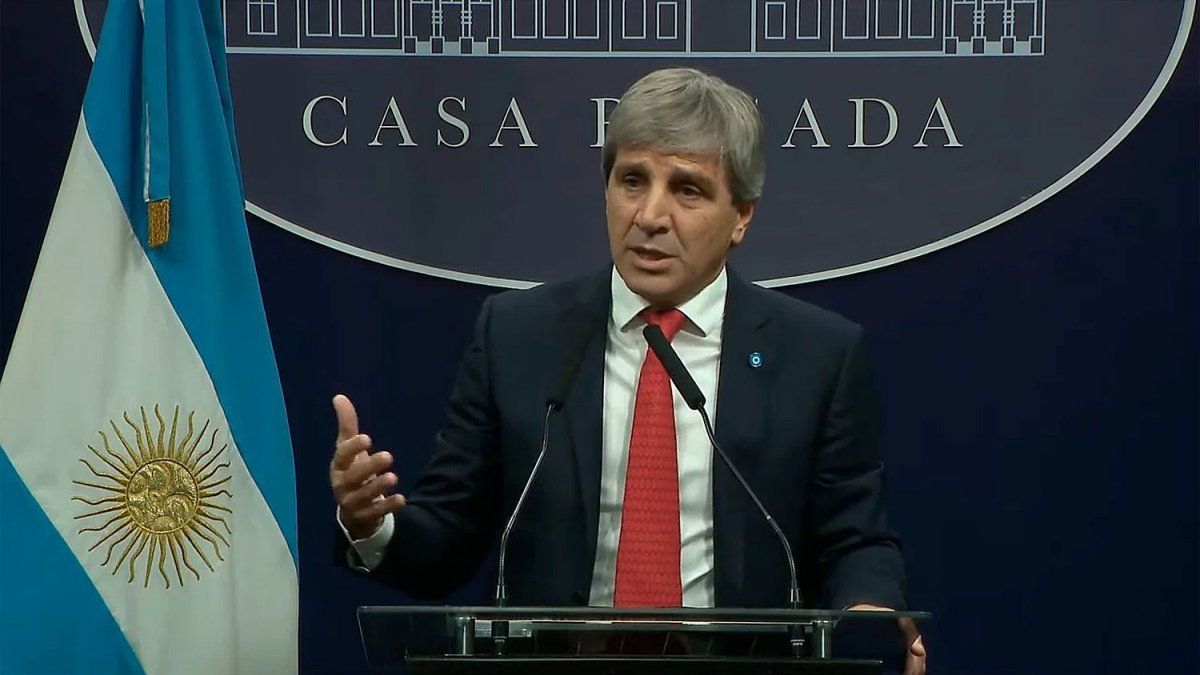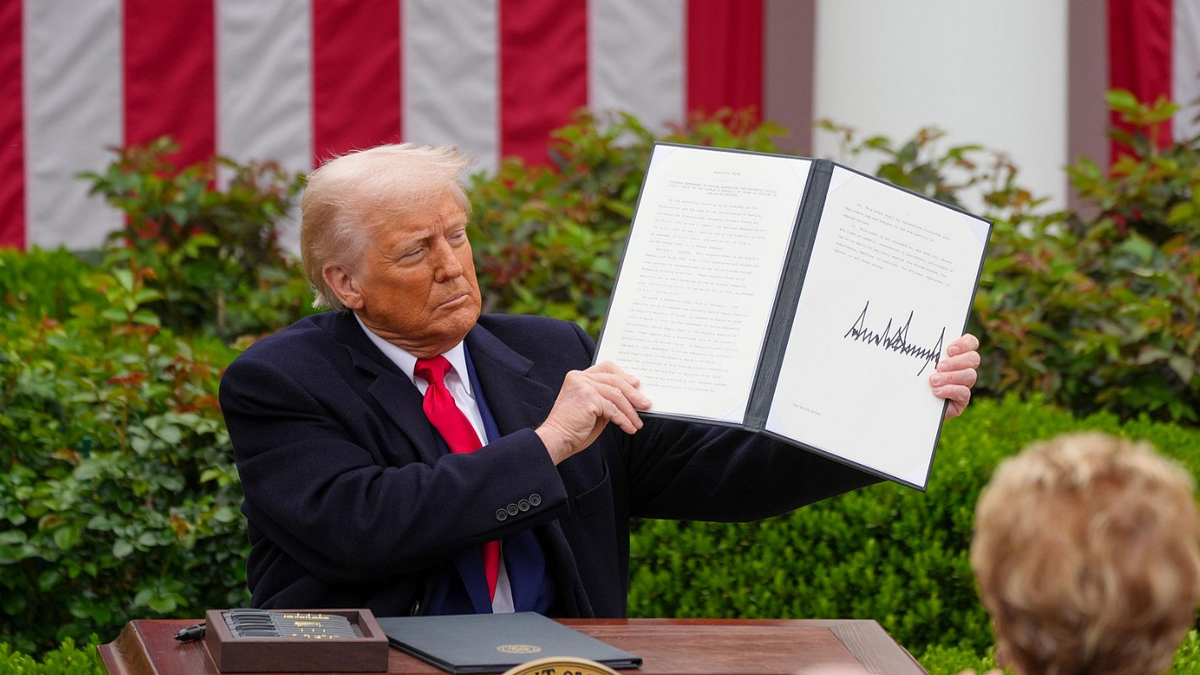The scene starring the Minister of Economy, Luis Caputoincreasing on television a journalist who asked about his assets abroad, condensed in a performative gesture the structural drama that contemporary Argentina is going through; The capture of the state apparatus by cosmopolitan financial operators that use public function as a platform to maximize private profits. This situation is not an isolated anomaly, but the visible manifestation of a systemic architecture; Opaque legalities, financial rentism, and the conversion of the State into instrument at the service of a transnational accumulation network without territorial roots or public ethics.
The performative power of opacity
Inspired by John Austin (1962), we understand that certain speech acts do not describe reality, but transform it. When Caputo ordered: “Do not be disrespectful. Restify immediately,” not only imposed silence, but reconfigured the terms of the debate. The gesture sought to shield an uncomfortable truththat those who conduct the Argentine economy not only do not invest in the country, but also benefit from their structural distrust.
As can be seen from “Paradise Papers”, Caputo appeared as administrator of Noctua Partners LLCwith ramifications in opaque jurisdictions such as MAN ISLAND. He did not declare this relationship in his passage through the public function (2015-2018), or when he returned in 2023, which constitutes an ethically serious and legally debatable omission (Palan, 2003; Hudson, 1998). In November 2024, the Minister of Economy, Caputo registered an increase of 2,042 % in his patrimonial statement, from 744 million to almost 16 billion pesos. The increase caused controversy for the opacity of its assets and because a good part of its wealth is located outside the country, especially in accounts of the island of Man (Infonews, November 7, 2024).
The logic of looting: offshore, commissions and carry trade
Argentina has transformed into a laboratory of financial practices designed to maximize speculative returns without accountability. The structure of Carry Trade It was reinstalled as State policy from Caputo’s return. In Wall Street novel literature, often their same actors of reality report operations based on their experience, and refer to life as it is, routine practices where hidden commissions, financial triangulations and extraordinary benefits for funds or banks that operate in cooperation with officials operating with their own active off -shore are enabled.
The current president of the BCRA, Santiago Bausili, a partner of Caputo, was prosecuted for negotiations incompatible with the public function. While the case was closed, the Criminal Cassation Chamber ordered to reopen it in November 2024which again exposes the institutional fragility of a country whose monetary policy is in charge of a judicially compromised official.
Luis Caputo Amcham (2) .jpg
Luis Caputo, Minister of Economy.
Hard data: an economy on the edge
While austerity is preached to the population, those responsible for economic policy operate from fiscal den. The amorality of economic policy It disintegrates in concrete figures:
- In March 2025, the economic activity contracted one (-1.8%), compared to (-0.6%) planned by investment banking departments. It collapsed 3 times more than expected.
- The inflation of that month was 3.7%.
- Despite a rebound in April, the second quarter shows in “drafts” a weak provisional projection, with an estimated growth of just 0.1% year -on -year.
- The accumulated fiscal surplus to the first four -month period is 0.6% of GDP, based on creative accounting, drops with 1.2% expenditure (with 46.6% reduction in economic subsidies).
This macroeconomic picture, far from representing a structural recovery, shows a Precarious balance sustained by statistical illusion and social suffering.
The amoral experiment: legalization of the illegal
The “Historical Reparation of the Savings of the Argentines” is not a bleaching; It is a financial amnesty that has the potential to enable the legalization of background funds without traceability. By promoting this policy by decree, the Executive blurs the boundaries between the taxpayer he complies with and the evasor who enriches himself violating the law. A model of “Financial banana republic”without effective controls, or international compliance standards.
Georgieva said it without euphemisms: “Argentines have more than 200,000 million dollars outside the country.” But I was not referring to small savers; The offshore does not work with minor amounts because for a small or medium saver the operational costs exceed the benefits. Georgieva referred, among other Argentines, to the economic-financial elite that he governs today.
A democracy under threat
The government’s political model is based on unsustainable contradiction; It demands trust while practicing distrust. No serious bank It will lend to a country where the Minister of Economy does not deposit its assets. It is a tacita law of serious banks that help restructure debts and compose compromised financial situations. The performer power scene becomes a delegitimization scene; Argentina is governed by a denationalized ruling class, which uses symbolic violence as a armor method.
The recent intermediate elections confirmed this crisis; With a participation of just 53%, the ruling party obtained 30% in the city of Buenos Aires, while Kirchnerism was as the first legislative minority. 70% of the capital electorate did not refund the government in its most friendly bastion, rather ruled out. This is not governance, it is accelerated wear.
“From the public administration to the private administration of the State”
The Argentine economy is not being conducted by a republican government, but by a financial consortium that operates in opacity. The State has become a functional device to the maximization of veiled benefits, administered by former global traders more concerned with the Spreads than for national equity or sovereignty.
This situation requires an urgent institutional reaction. It is not enough to discuss fiscal balances or inflation goals, it is necessary to reconstruct a public ethic, reintroduce mandatory patrimonial traceability and exclude from the occupation of public office to those who have offshore assets. Democracy cannot be sustained on the basis of a political system infiltrated by operators whose only loyalty is the immediate and personal benefit.
References: Austin, JL (1962). How To do Things With Words. Oxford University Press. Hudson, A. (1998). Offshore jurisdictions and the law. Sweet & Maxwell. PALAN, R. (2003). The Offshore World: Sovereign Markets, Virtual Places, and Nomad Millionaires. Cornell University Press. International Monetary Fund (2025). Staff Report for the Republic of Argentina. Ministry of Economy of the Argentine Nation (2025). Fiscal and Economic Activity Data – March and April 2025.
Director of Esperanza Foundation. Postgraduate professor at UBA and private universities. Master in International Economic Policy, Doctor of Political Science, author of six books.
Source: Ambito
David William is a talented author who has made a name for himself in the world of writing. He is a professional author who writes on a wide range of topics, from general interest to opinion news. David is currently working as a writer at 24 hours worlds where he brings his unique perspective and in-depth research to his articles, making them both informative and engaging.




